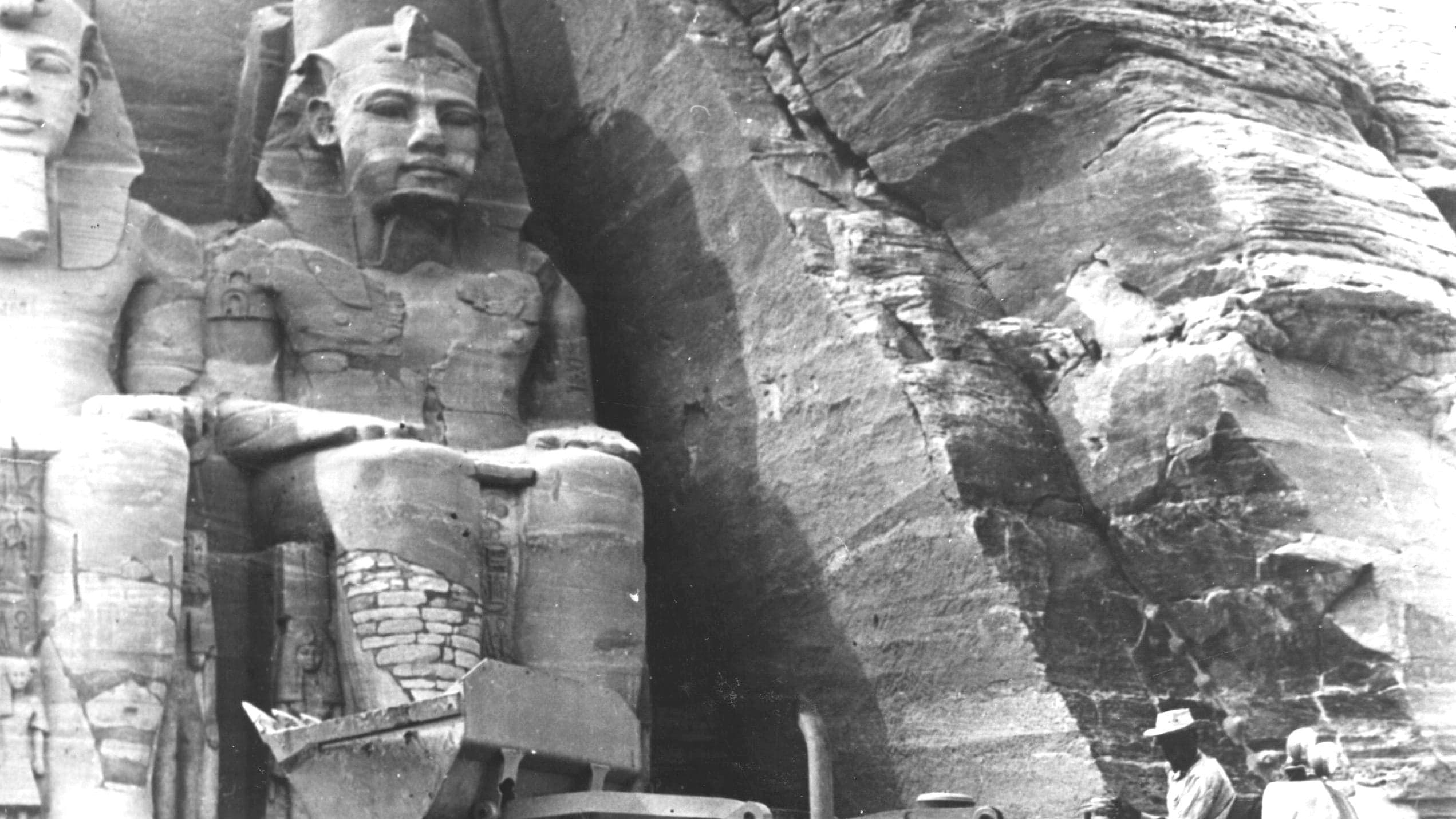On April 7, 1961, President John F. Kennedy sends a letter to Congress in which he recommends the U.S. participate in an international campaign to preserve ancient temples and historic monuments in the Nile Valley of Egypt. The campaign, initiated by UNESCO, was designed to save sites threatened by the construction of the Aswan High Dam.
JFK believed that America’s participation in the project would reflect “the interests of the United States,” as well as the country’s interest in ancient Egyptian culture “from which many of our own cultural traditions have sprung” and the U.S.’s “deep friendship for the people who live in the valley of the Nile.” Kennedy possessed a personal interest in the sciences and history and, from the beginning of his presidency, set out to promote American scholarship in these areas. His administration also wanted to develop diplomatic ties with the Arab nations in the Middle East and North Africa.
In 1961, the total cost of preserving Egypt’s historic sites was estimated at $100 million; the U.S. contributed a total of $16 million toward the effort, which was used to help protect ruins from water re-routed for the dam or to relocate antiquities. Endangered sites helped by U.S. money included the 13th century temples at Abu Simbel dedicated to Ramses II and Queen Nefertari (not to be confused with Queen Nefertiti) and a temple at Philae called “the Pearl of Egypt.” In exchange for the preservation aid, the United Arab Republic (formed by Egypt and Syria in 1958) and Sudan agreed to let American archaeologists excavate areas outside of the Nile Valley and take some Nile Valley treasures back to U.S. museums.
Kennedy, assassinated in 1963, did not live to see any of the precious antiquities arrive in America. His widow, however, former first lady Jacqueline Kennedy, helped arrange to have Eqypt’s Temple of Dendur brought to New York’s Metropolitan Museum of Art in 1965. The temple remains a centerpiece of the museum’s collections.
